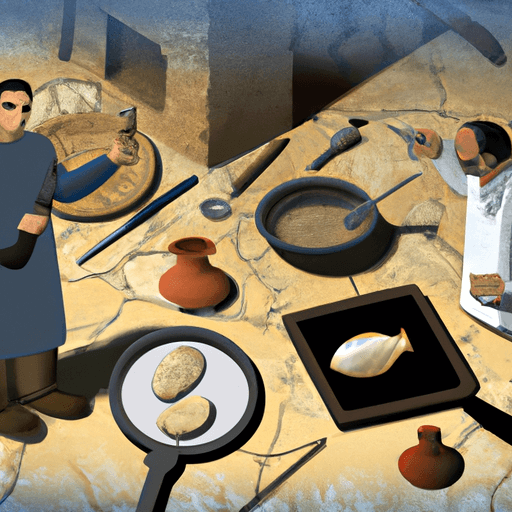The History of Mankind and the Evolution of Cooking Methods
The history of mankind is intrinsically linked with the evolution of cooking methods. Our ancestors devised innovative techniques and methods to prepare food, which significantly contributed to human survival and evolution. Over thousands of years, these practices have been passed down and evolved, providing us with a rich variety of culinary traditions across the globe.
Ancient Cooking Techniques
In ancient civilizations, our ancestors made use of naturally available resources to cook their food. For example, ancient Egyptians utilized earth ovens, which were essentially pits in the earth that were heated up by filling them with hot stones. These ovens were used to bake bread or roast meat.
In Asia, evidence suggests that the art of fermenting foods was practiced as early as 6000 BC in China, involving fruits, rice, and meat. This not only allowed food to be stored for longer periods but also introduced unique flavors and textures.
Types and Uses of Ingredients
The types and uses of ingredients in ancient times varied widely, reflecting regional and cultural differences. The ancient Mayans, for example, were known for their use of various local ingredients like maize, beans, chilies, and cacao in their cuisine. This focus on local and seasonal ingredients is something that is strongly echoed in today's culinary trends.
The Utilization of Cooking Appliances
Cooking appliances have also witnessed a significant evolution since ancient times. From the open-fire cooking practiced in early civilizations to the sophisticated appliances of today’s kitchens, this evolution represents mankind's relentless quest for convenience and efficiency. The invention of the cooking stove in the 18th century, for instance, revolutionized cooking. It provided a controlled environment for cooking, paving the way for complex recipes and methods.
Influence on Today's Gastronomy
The impact of ancient cooking techniques and principles can be widely seen in modern gastronomy. Methods like fermentation, smoking, and earth oven cooking are being revived and innovatively applied by chefs around the world. The focus on local and seasonal ingredients, inspired by our ancestors, is shaping the modern farm-to-table movement. Furthermore, the desire for efficiency and precision continues to drive the development of advanced appliances.
The Evolution is Ongoing
Understanding the history of cooking practices provides us with a fresh perspective of our culinary roots and traditions. These age-old practices continue to shape the way we cook in modern times, influencing current food trends and flavors. It serves as a reminder that the history of cooking is not just a testament to mankind's survival and evolution but also a showcase of our creativity, cultural diversity, and endless pursuit of enjoyment through food.
















Comments
Leave a Comment